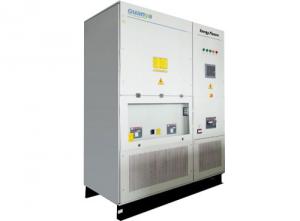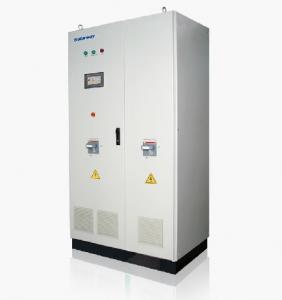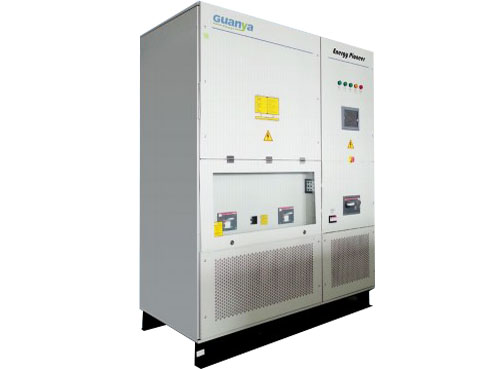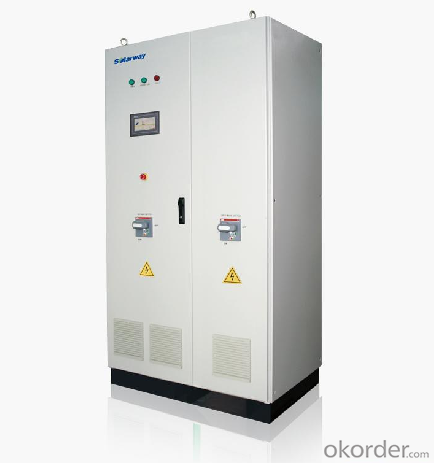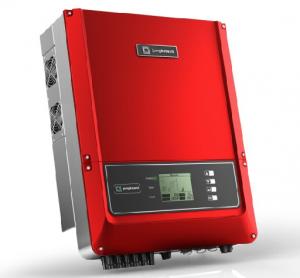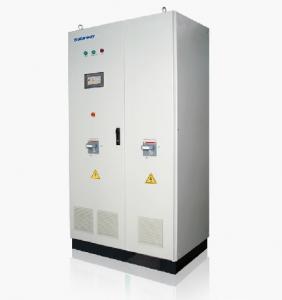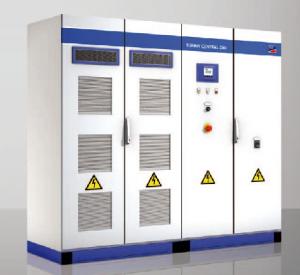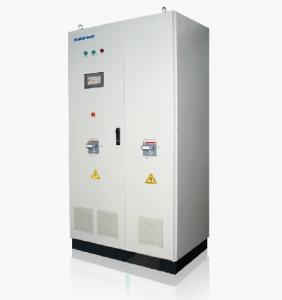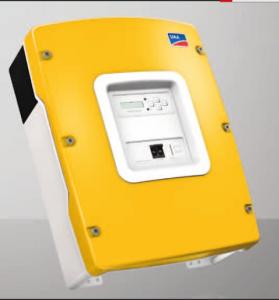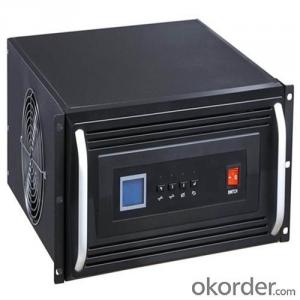LVRT PV On-grid Inverter GSG-500KL from CNBM China
OKorder Service Pledge
OKorder Financial Service
You Might Also Like
Description:
CNBMSOLAR is a world-leading and Vertical integrated manufacturer of high-performance with Silicon,
Wafer, Cells, Modules, which convert sunlight into electricity for residential, commercial, and utility-scale
power generation.
The capacity of CNBMSOLAR is reach to 1GW, and make sure each year our shipment capacity is more
Than 700-800MWs, at the same time, we have set up the largest solar power station with our partner
in Ukraine.
CNBM is a Quality + Service oriented company with“Excellence at Each Step” approach, composed of
the finest components from TUV and IEC-certified partners around the world, CNBM modules consistently
undergo a variety of trials at the company’s Test & Development Centre, ensuring peak performance
capabilities. The company is committed to develop and provide the world with clean and renewable energy
to ease the energy shortages as well as human kind’s impact on the environment
Technicalparameters
Electrical plant
Items | Parameters | |
DC input | Maximum DC input power (KWp) | 550kW |
Maximum PV open-circuit voltage(VDC) | 1000VDC | |
Maximum PV array input current(A) | 1250A | |
DC input voltage range (VDC) | 0~1000VDC | |
MPPT voltage range (VDC) | 500~850VDC | |
AC output | Rated output power (KW) | 500kW |
Operating voltage range (Vac) | 315Vac | |
Operating frequency(Hz) | 47.5~51.5Hz | |
Maximum efficiency(%) | 98.6% | |
Power factor | ≥0.99 | |
THD(%) | <3% | |
Self-consumption at night(W) | <80W | |
Noise emission | ≤65dB(1m) | |
Protection function | Protection rating | IP20(indoor) |
Over/Under voltage protection | Yes | |
Over/under frequency protection | Yes | |
Anti-islanding protection | Yes | |
Over current protection | Yes | |
Polar reversed wiring protection | Yes | |
Overload protection | Yes | |
Usage environment | Usage temperature range | -20℃~+55℃ |
Storage temperature range | -40℃~+65℃ | |
Usage relative humidity | 0~95%RH | |
Altitude | 3000m |
Mechanical plant
Items | parameters |
Dimension (W/H/D) | 950*2000*2140mm |
Weight | 1.423t |
Human-machine interface and communication
Items | Parameters |
Display | LCD-Touch |
Standard communication | RS485 |
Optional communication | GPRS, Ethernet |
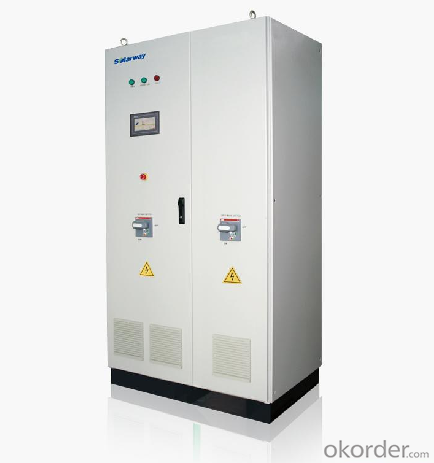
FAQ:Could you pls introduce more about CNBM?
CNBM Group is short for China National Building Materials Group Corporation, which is established in 1984 with approval from the State Council
CNBM Group is the largest comprehensive building materials industry group in China
The Group has a total asset of over RMB 360 billion, more than 180,000 employees and 17 subsidiaries
- Q: Are there any safety concerns with solar inverters?
- Yes, there are some safety concerns with solar inverters. These concerns mainly revolve around electrical safety and fire hazards. Solar inverters handle high voltage DC electricity and convert it into AC electricity, which can pose a risk of electric shock if not installed or maintained properly. Additionally, faulty or poorly designed inverters may overheat or catch fire, potentially endangering the surrounding area. It is crucial to ensure that solar inverters meet the necessary safety standards and are installed by qualified professionals to mitigate these risks.
- Q: Can a solar inverter be used in conjunction with a power factor correction device?
- Yes, a solar inverter can be used in conjunction with a power factor correction device. The power factor correction device helps to improve the power factor of the electrical system, ensuring efficient and reliable operation. By installing a power factor correction device in combination with a solar inverter, the overall power quality can be enhanced, leading to optimized energy utilization and reduced electricity costs.
- Q: Can a solar inverter be used with different battery chemistries?
- Yes, a solar inverter can be used with different battery chemistries as long as the inverter is compatible with the specific chemistry. However, it is important to ensure that the inverter is designed to support and optimize the charging and discharging characteristics of the specific battery chemistry being used for optimal performance and longevity.
- Q: How does a solar inverter handle voltage fluctuation during cloud cover?
- A solar inverter handles voltage fluctuation during cloud cover by continuously monitoring the output voltage of the solar panels. When cloud cover causes a decrease in sunlight and therefore a drop in voltage, the inverter adjusts its operation to maintain a stable output voltage. It does this by employing various techniques such as maximum power point tracking (MPPT) to optimize power generation, and voltage regulation to ensure the output voltage remains within the desired range. This helps to minimize the impact of voltage fluctuations and ensure the solar system continues to operate efficiently even during cloud cover.
- Q: Can a solar inverter be used in systems with different module tilts?
- Yes, a solar inverter can be used in systems with different module tilts. Solar inverters are designed to convert the DC power generated by solar modules into AC power that can be used in electrical systems. They are typically compatible with a wide range of module tilts and orientations. However, it is important to ensure that the inverter is properly configured to match the specific tilt angles of the solar modules for optimal performance and maximum energy generation.
- Q: How does a solar inverter handle shade on solar panels?
- A solar inverter handles shade on solar panels by employing a technology called Maximum Power Point Tracking (MPPT). MPPT allows the inverter to constantly monitor the output of each individual solar panel and adjust the voltage and current to maximize the power output. When shade is present on one or more panels, the inverter can dynamically optimize the power generation by bypassing the shaded panels or reducing their impact on the overall system performance.
- Q: Can a solar inverter be used in parallel configurations for increased power output?
- Yes, a solar inverter can be used in parallel configurations for increased power output. By connecting multiple inverters in parallel, the overall power output can be increased, allowing for the utilization of larger solar arrays and maximizing the energy generation capacity.
- Q: What are the key differences between a central inverter and a string inverter?
- The key differences between a central inverter and a string inverter lie in their design and functionality. A central inverter is a larger unit that is typically installed at a centralized location, such as a utility room, and is connected to multiple strings of solar panels. It converts the DC (direct current) electricity generated by the solar panels into AC (alternating current) electricity that can be used to power appliances or fed back into the grid. Central inverters are more suitable for larger installations, as they can handle higher power capacities and are more efficient at converting DC to AC. On the other hand, a string inverter is a smaller unit that is usually installed near the solar panels and is connected to each individual string of solar panels. It converts the DC electricity from each string into AC electricity. String inverters are more commonly used in smaller residential or commercial installations, as they offer more flexibility in panel arrangement and monitoring. They also allow for individual optimization and monitoring of each string, which can be beneficial in cases where panels may be shaded or have different orientations. In summary, while central inverters are better suited for larger installations and offer higher efficiency, string inverters provide more flexibility and individual optimization options for smaller installations.
- Q: How does a solar inverter handle voltage flicker?
- A solar inverter handles voltage flicker by continuously monitoring the voltage fluctuations in the grid and adjusting its output accordingly. It uses advanced control algorithms to stabilize the voltage and maintain a consistent power supply to the connected devices. Additionally, it may have built-in features such as reactive power compensation and voltage regulation to minimize voltage flicker and ensure a smooth and reliable energy conversion process.
- Q: Are there any safety considerations when installing a solar inverter?
- Yes, there are several safety considerations when installing a solar inverter. Firstly, it is important to ensure that the inverter is installed by a qualified professional who is familiar with local electrical codes and regulations. This helps to minimize the risk of electrical hazards and ensures a safe installation. Additionally, proper grounding and bonding should be implemented to protect against electrical shock and lightning strikes. Adequate ventilation and temperature management are also important to prevent overheating and potential fire hazards. Overall, following safety guidelines and employing professional installation services are crucial to ensure the safe and efficient operation of a solar inverter system.
Send your message to us
LVRT PV On-grid Inverter GSG-500KL from CNBM China
OKorder Service Pledge
OKorder Financial Service
Similar products
Hot products
Hot Searches
Related keywords
